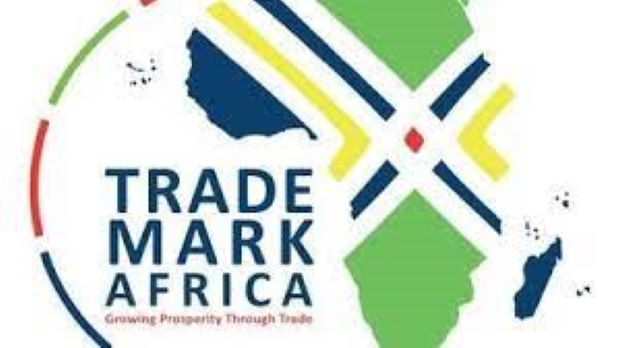General News
TradeMark Africa Launches in West Africa

TradeMark East Africa, one of the world’s leading Aid for Trade organisation, has rebranded to TradeMark Africa (TMA) and simultaneously officially launched its West Africa operations.

Founded in 2010 in Kenya, today marks TradeMark Africa expansion from its previous core operational area of East Africa and the Horn, to also support countries in West and Southern Africa.
TradeMark Africa now has a presence in fourteen countries in sub-Saharan Africa (SSA): Kenya, Uganda, Tanzania, Rwanda, Burundi, the Democratic Republic of Congo (DRC), South Sudan, Ethiopia, Somaliland, Djibouti, Malawi, Zambia, Mozambique, and Ghana.
TradeMark Africa has to date made cumulative investments of over $1.3 billion in East Africa and the Horn, to reduce the time and costs of trading across borders, and to improve export competitiveness of African businesses.
These have among other results slashed the time for traders to cross borders – by 70% on average; and for businesses to receive certification – often from many days to a number of hours.
Its programmes have contributed to a 16.5% reduction in the total time it takes to transport a container on the Northern Corridor from Kenya’s Mombasa Port to Bujumbura, Burundi.
As part of the pivot to West Africa, TradeMark Africa will support the Secretariat of the African Continental Free Trade Area (AfCFTA), based in Accra, Ghana, to realise its vision of integrating the $3.4 trillion African market.
TradeMark Africa will also work with regional economic communities (RECs) such as the Economic Community of West African States (ECOWAS), to boost regional economic integration and accelerate trade.
Further, it will work with Member States to ensure Governments and businesses benefit practically from the opportunities presented by these shifts – in particular along the Lagos-Abidjan corridor.
The successful implementation of the AfCFTA is predicted to boost incomes in Africa by $450 billion by 2030.
At the same time, TradeMark Africa announced that its new strategy will build on and scale up on its core strengths, to focus on facilitating development of digital and green trade corridors, to position Africa as a partner of choice for global off takers; as well as promoting inclusive trade that drives down poverty levels and ensures that vulnerable groups are more integrated in trading systems.
TradeMark Africa’s Board Chairman, Amb. Erastus Mwencha said, “As a leading Aid-for-Trade (AfT) Programme, a continental approach gives TMA an important opportunity to expand its impactful programming progressively, while supporting the aspirations of AfCFTA to unleash the immense impact that free trade in high value products, exists in Africa.
“Our key aim remains trade facilitation, just like we have always done in the last 12 years in the East and Horn of Africa region, where we were founded and have had great milestones in our programmes.”
TradeMark Africa’s Chief Executive Officer, Mr. David Beer remarked, “We believe that combining a regional and national approach has always been part of our comparative advantage.
With our expanded scope, we are excited now to harness the critical continental dimension to drive faster growth in trade volumes, and to support linkages between regions.
TMA’s focus on reducing the barriers to trade and improving business competitiveness will also be a core element of tackling the trade challenges of the future, as we pivot towards creating green trade corridors and enhancing regional food security.”
Some of TradeMark Africa successes in the last 12 years include the construction and operationalisation of 15 One Stop Border Posts (OSBPs) across East Africa, which have reduced the time taken to cross select borders by up to 89% in some cases.
Moreover, TradeMark Africa has supported the implementation of 60 Single Window Information for Trade (SWIFT) Systems in multiple Government agencies, thus reducing the time and cost of acquiring trade documents, designed the Regional Electronic Cargo Tracking System (RECTS) on the Northern Corridor in East Africa, which ensures safety of cargo, and operationalised programmes like Standards, Sanitary and Phytosanitary (SPS), and reduction of Non-Tariff Barrier (NTBs). It has also supported over 200,000 women cross-border traders and small and medium enterprises.
General News
FG Enters Tech Partnership with Ericsson

Nigeria has reaffirmed its dedication to deepening its collaboration with Ericsson, Swedish technology firm with Vice President Kashim Shettima promising swift implementation of the Memorandum of Understanding (MoU) signed earlier in 2024.

The vice president made this statement during a courtesy visit from a delegation representing Ericsson, led by Mr Patrick Johansson, its senior vice president and head of Market Area for Europe, the Middle East, and Africa.
The meeting took place at the Presidential Villa in Abuja, the nation’s capital.
During the engagement, Vice President Shettima described Ericsson as a key player in Nigeria’s technological journey, acknowledging the company’s early role in establishing a foundation upon which other major tech firms have since built.
He praised Ericsson for remaining a reliable ally in Nigeria’s developmental narrative, particularly commending its current initiatives such as the creation of innovation hubs and support for small and medium-sized enterprises.
According to him, these actions serve to strengthen an already enduring partnership.
Encouraging Ericsson and other foreign investors to take advantage of the country’s vast potential, Shettima highlighted the vitality and promise of Nigeria’s youthful population.
“We cherish our relationship with Sweden and your company, and I must urge you to harness our manifest destiny. We are a large nation with a tech-savvy population. We are making efforts across different fields. A good number of the unicorns that we have in Africa are Nigerian-based. The future is Nigeria,” the vice president stated.
Mr Patrick Johansson echoed this sentiment, stressing the importance of reinforcing ties between Nigeria and Ericsson by championing local innovation and entrepreneurship.
He noted these as key priorities for the company’s engagement in the region.
General News
NIPOST Threatens Courier, Logistics Service Providers

Nigerian Postal Services (NIPOST) has urged courier or logistics service providers to register with the service or face the wrath of the law.

Dr Chris Ashiedu, state postal manager, Enugu State, made the call while speaking on Tuesday at the ongoing 36th Enugu International Trade Fair.
The 10-day Fair, which kicked off on April 4, is themed: “Developing Nigeria Industrial Sector/SMEs for Economic Advancement and Global Recognition”.
Ashiedu said that any company or venture who failed to register as well as their workers would also be liable to legal sanction of fines, imprisonment or both.
He said that NIPOST had so far registered 29 courier/logistic service providing companies or ventures in Enugu State, while hunting for others operating under hiding.
According to him, we are succeeding in pushing to get them notwithstanding that they are dodging NIPOST officials but we are determined to get every courier/logistic service provider in Enugu State under our regulatory control and guidance.
Ashiedu said that the Agency was already developing a technological App to track those operating in the secret and get their locations.
He said: “NIPOST is a Federal Government agency constitutionally charged with the regulation and licensing of all courier and logistics services in Nigeria.
“We clamped down on all unregistered courier and logistics service companies or providers last month in Enugu, and we will keep on chasing them until they do what the law demands.
“We will also compel them to do their annual re-registration.
“It is made easier for them since NIPOST has categorised courier/logistics services into international, national, regional and state and bulk of the couriers/logistics fall into state category to pay very less for registration and annual re-registration.”
The manager explained that any movement of item, be it food or even fruit on a motorised equipment (vehicle or motorcycle) from one location to another in terms of delivering is doing courier service.
General News
Sofia Zab, PalmPay CMO Highlights Strategies for Driving Digital Payment Adoption in Africa

At the recent Tech Unite Africa 2025 conference in Lagos, PalmPay’s Chief Marketing Officer, Sofia Zab, shared valuable insights on accelerating the shift from cash to digital payments in Africa, as the company introduced its latest innovation: the PalmPay Debit Card.

During a panel discussion, Zab addressed the critical barriers hindering digital payment adoption encountered by PalmPay when the company launched in Nigeria: reliability and cost. She noted that in 2019, many Nigerian consumers and merchants avoided digital payments due to frequent transaction failures and high fees.
To overcome these challenges, PalmPay developed a robust infrastructure ensuring a 99.95% transaction success rate and pioneered a user-friendly model with zero rated bank transfers, fee-free bill payments and cashback rewards.
“Once users experience the benefits, they don’t want to return to cash,” Zab stated. “The key to shifting consumer behaviour is making digital payments more convenient, more rewarding, and less stressful than using cash.” As consumers adopted cashless payments, they began seeking out merchants that would accept payment with transfer, driving digitisation in retail payments organically.
Zab also highlighted PalmPay’s inclusive approach to building a cashless ecosystem, especially in areas with unreliable internet access. Beyond its smartphone app, Nigerians can transact through PalmPay’s nationwide network of mobile money agents, who are equipped with multiple devices and SIM cards from various providers and can transact on behalf of users if a particular network is experiencing an outage.
In 2024, PalmPay went a step further by introducing a USSD code (*861#) for users without data access, and with the new PalmPay Debit Card, its customers now have another access point and can withdraw cash from ATMs or point-of-sale terminals when digital transactions are not feasible. “For us, the key is about meeting people where they are, rather than waiting for the perfect infrastructure to arrive”, Zab emphasized.
In alignment with its mission to drive financial access, PalmPay unveiled the PalmPay Debit Card at the conference. Developed in partnership with Verve, Africa’s largest domestic card scheme, the card offers zero maintenance fees, easy in-app application with nationwide delivery, and integration into PalmPay’s full suite of financial services – including cashback, merchant rewards, and high-yield savings. This initiative marks a significant milestone in PalmPay’s evolution into a comprehensive digital banking platform.
With over 35 million users on its smartphone app and a MSME network of 1.1 million agents and merchants across Nigeria, PalmPay continues to build one of the continent’s most dynamic fintech ecosystems, dedicated to redefining digital banking to be more personalised, comprehensive, and accessible to everyone.

 Broadcasting2 days ago
Broadcasting2 days agoMTN Battles Netflix, Showmax with New Streaming Platform

 News2 days ago
News2 days agoHow KongaFM 103.7 Helped Cure My Insomnia Challenge

 News2 days ago
News2 days agoFG to Invest in Cutting-edge Broadcast Technology

 Broadcasting2 days ago
Broadcasting2 days agoFG Begin Technical Upgrade of Government-Owned Media

 Broadcasting2 days ago
Broadcasting2 days agoProf Osinbajo Seeks Stronger IP Protection in Nigeria, Africa

 General News2 days ago
General News2 days agoMart Networks Brings Comprehensive Cybersecurity Solutions from Infopercept to Africa

 General News2 days ago
General News2 days agoOneData Revolutionizes Caleb University Campus Connectivity, Empowering Students for the Digital Age

 General News2 days ago
General News2 days agoEvans Woherem’s Book, “Building A New Africa” Charts Bold Vision For Africa’s Future

















